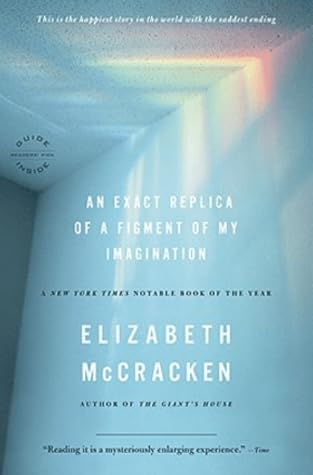More on this book
Community
Kindle Notes & Highlights
Read between
October 22 - November 7, 2020
After the baby died, I told Edward over and over again that I didn’t want to forget any of it: the happiness was real, as real as the baby himself, and it would be terrible, unforgivable, to forget it. His entire life had turned out to be the forty-one weeks and one day of his gestation, and those days were happy. We couldn’t pretend that they weren’t. It would be like pretending that he himself was a bad thing, something to be regretted, and I didn’t. I would have done the whole thing over again even knowing how it would end.
No more talk of angels. I can’t stand the tendency to speak of dead children as such. I do not want him elevated to angel. I do not want him demoted to neverness. He was a person, that’s all.
What the hell: I couldn’t bend my attention to writing anything else, and I was eight months pregnant, past the danger point, so I thought, so I thought, and I began a funny book about being pregnant in France. I didn’t tell anyone except Edward and my friend Ann, because, of course: bad luck.
I saw a friend who’d had a baby three months after me, a wonderful woman who — because she had just become a mother — was so sympathetic and sweet to me. Most people didn’t even mention Pudding; she enfolded me in a hug and said, “Oh, Elizabeth, I am so sorry about your baby” — and I just wanted her to leave, because I didn’t want to be a good and decent and functioning human being and ask after her baby.
I am that thing worse than a cautionary tale: I am a horror story, an example of something terrible going wrong when you least expect it, and for no good reason, a story to be kept from pregnant women, a story so grim and lessonless it’s better not to think about at all.
This was how we learned that French pregnancies last longer than American pregnancies, at least officially.
To every single person who noticed I was pregnant the second time, and said, “Congratulations! Is this your first?” To every person who peeks into the stroller now and says the same thing. Every day of my life, I think, I’ll meet someone and be struck dumb, and all I’ll have to do is reach in my pocket. This book, I am just thinking now, is that card.
But my grief was still fresh, grief lasts longer than sympathy, which is one of the tragedies of the grieving, and the distance between what I felt and what she wrote infuriated me. She’s written to me since. I have never written back.
Here is a character from a gothic novel: the woman with the stillborn child. Her hair is matted and black. Ghosts nest in it. Her white nightgown is mottled with blood. In her hands is an awful bundle: the corpse she cannot bear to put down. She sings lullabies to it, rocks it in her arms. She says in a pleasant but tremulous voice, Would you like to see my baby? He’s such a nice little baby. Such a little, little baby. Shh: he’s sleeping.
For us what was killing was how nothing had changed. We’d been waiting to be transformed, and now here we were, back in our old life.
I wanted a separate waiting room for people like me, with different magazines. No Parenting or Wondertime or Pregnancy, no ads with pink or tawny or pearly smiling infants. I wanted Hold Your Horses Magazine. Don’t Count Your Chickens for Women. Pregnant for the Time Being Monthly.
Once you’ve been on the losing side of great odds, you never find statistics comforting again.
called in America a nonstress test. This is of course a contradiction in terms, because listening to anyone’s heartbeat for half an hour is stressful: it changes, and you want to ask the medical professional, Is that all right? Too fast, too slow? The suspense is terrible.


